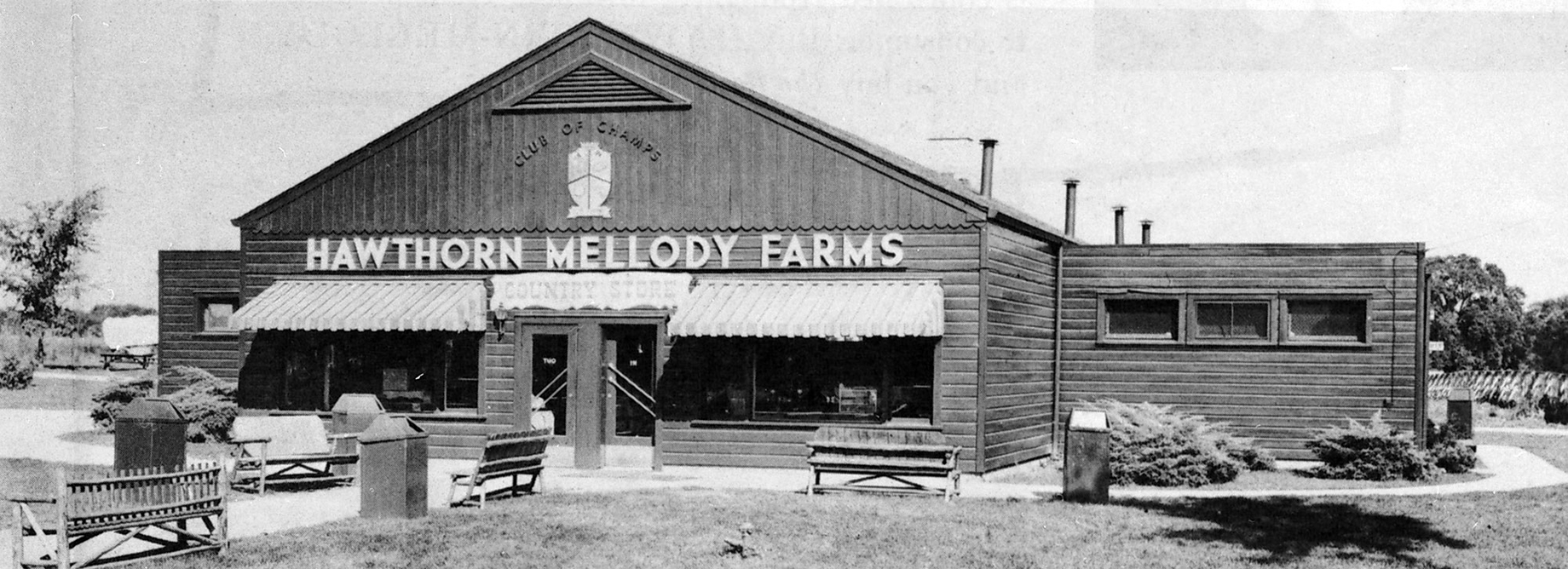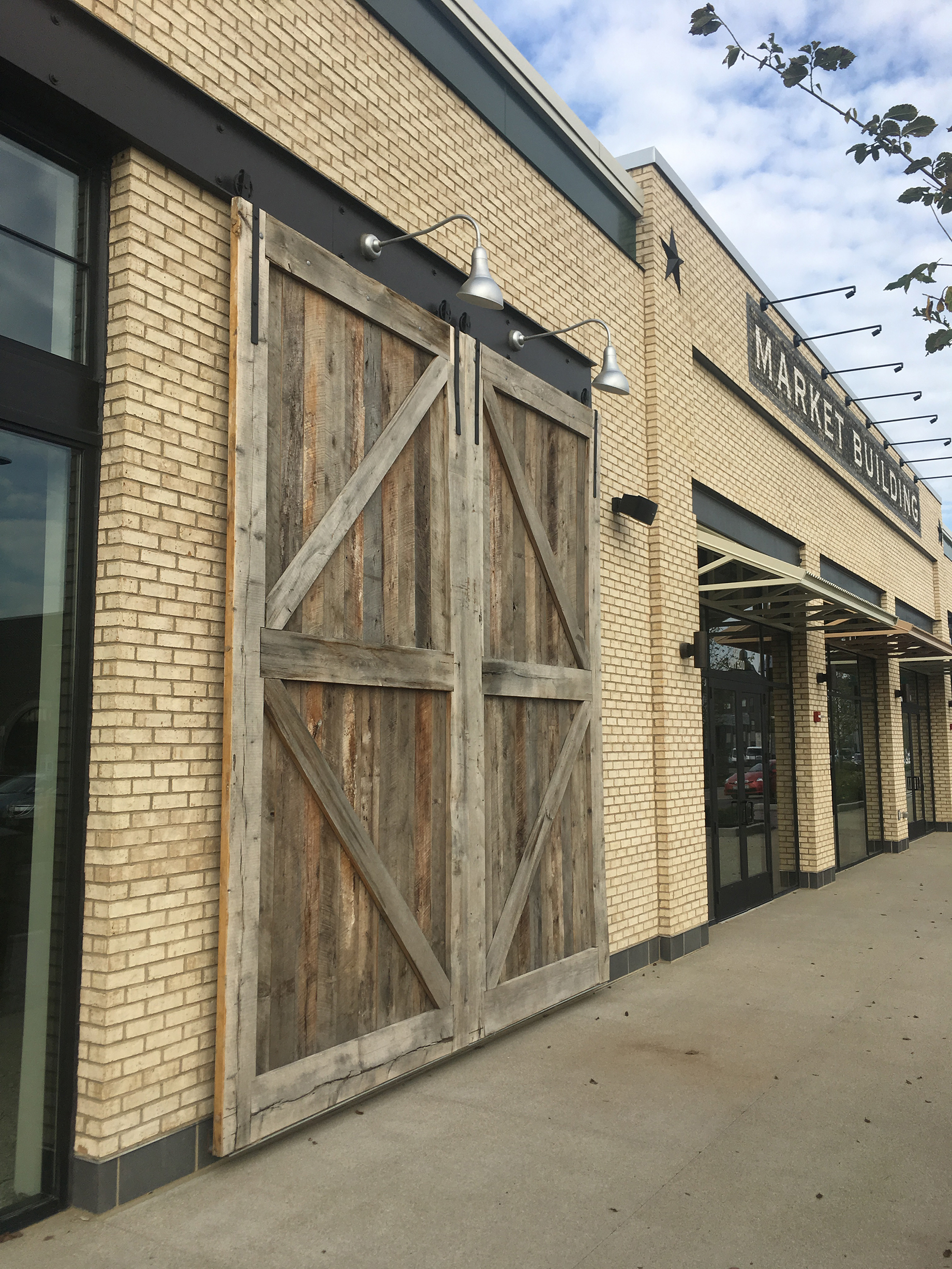For history buff Matt Hendy, Mellody Farm is much more than a shopping center. Hendy, a vice president and market officer based in the Chicago office of Regency Centers, led the five-year development of Mellody Farm, a $100 million shopping center that opened last year in Vernon Hills, Ill., outside Chicago.
The 52-acre site is part of a 3,000-acre property that boasts a storied and colorful past. In the early 1900s Lake County comprised numerous large farms that belonged to Chicago industrialists. This particular property belonged to Samuel Insull, a business partner of Thomas Edison and founder of what later came to be called the Commonwealth Edison utility company. After Insull’s death, Chicago businessman John Cuneo Sr. purchased the property and created a dairy farm he named Hawthorn Mellody, adding to it a theme-park feature. Today Hawthorn Mellody is defunct, but the newborn Mellody Farm sits directly across Highway 60 from the 1.3 million-square-foot Hawthorn Mall, which was built in 1972.
Hendy had known about this property, at the intersection of highways 60 and 21, west of I-94, and its drive-by traffic of some 80,000 vehicles daily for years. He certainly saw its potential as a retail development. He also saw that this particular portion of Lake County was underserved with regard to quality retail. “The county over the past 15 to 20 years has undergone a remarkable demographic shift,” he said, “but the quality of the retail has not kept up with the quality of the demographics.”

Unfortunately, the property also had something of a stigma attached to it. “Most Chicago developers had, at one point or another over the past 25 years, taken a run at it, and none had been able to develop it,” said Hendy. “But we put our noses to the grindstone, got to it and were able to strike a deal with the family.” Regency closed on the purchase of this property in April 2017.
During the center’s opening weekend, last October, some 3,000 shoppers visited anchors Barnes & Noble, HomeGoods, Nordstrom Rack, REI and Whole Foods and filled out comment cards. “There wasn’t a great experience at the intersection, and people were excited to see something new,” said Hendy.
As part of the master plan, Chicago-based Focus Development built a 260-unit apartment complex on the site’s northern edge. “We put the entrance right in line with our retail, so the projects appear much more horizontally integrated, and that was important to us,” said Hendy. He uses the word “energy” to describe the master plan’s overall theme. “When you come into Mellody Farm, from whatever entrance, you feel like you are in a different place, you feel like you have arrived.”

The Mellody Farm design is U-shaped, with all the stores facing inward. “From the very beginning, we knew we had to strike a balance between the age-old retail adages of visibility, access and parking,” Hendy said, “but we added a fourth one, which was placemaking.”
Hendy put together an architectural competition of sorts, from which Mike Rollison, a principal at Washington, D.C.–based Torti, Gallas & Partners, emerged as project designer. “The architecture is truly world-class,” said Hendy. “It is a different way of envisioning a larger-format retail center. This center does not feel like a power center.”
Involving the local community was a development priority too. One of the center’s hallmarks is its 30 custom-designed benches, each handcrafted by locally based artisans. Large murals are displayed throughout as well. “We were able to get the village [Vernon Hills] on board with allowing tenants to paint signs all over their storefronts, so it is a really unique experience,” said Hendy.
Timeline
1949 The Hawthorn Mellody dairy farm and amusement park is built on 3,000 acres
1992 Hawthorn Mellody closes and files for bankruptcy
2013 Regency Centers begins negotiations with the Cuneo family trust to acquire 52 acres
2017 Regency closes on the 52-acre purchase and announces development of the $100 million Mellody Farm shopping center
October 2018 Grand opening of Mellody Farm
Each building has a distinct design look. Some are taller than others, for example, to help maximize visibility from the highways. Reclaimed materials feature prominently throughout the project, and plaques highlight the story behind those materials. The wood on a large set of architectural barn doors was reclaimed from the Division Street bridge, which had spanned the Chicago River. Other wood was reclaimed from a barn in Kentucky that had housed Triple Crown winners.
Hendy cites the project as a good example of a public-private partnership, in which the developers worked with the state, the county and the village on upwards of some $7 million in infrastructure improvements.
Many have watched and waited for this site to come into its own, and today the optimism among some is palpable. “Mellody Farm is the next generation of the shopping center,” said Brendan Reedy, a CBRE senior vice president. “The land that comprises Mellody Farm was perhaps the best piece of undeveloped land in suburban Chicago. The property has a storied history, and it is fitting that such an incredible development [should] be the next chapter to serve the people of this region.”
By Ben Johnson
Contributor, Commerce + Communities Today


